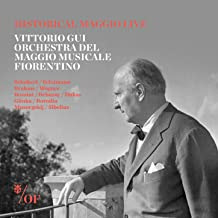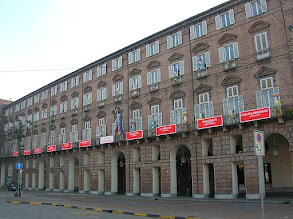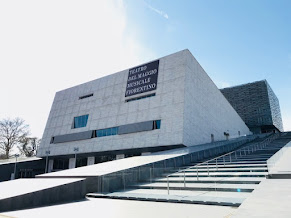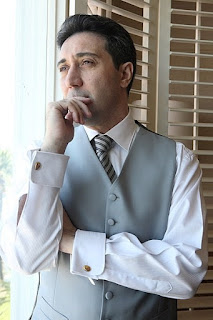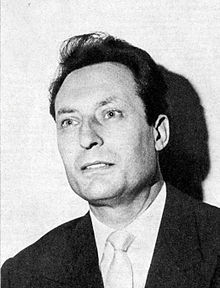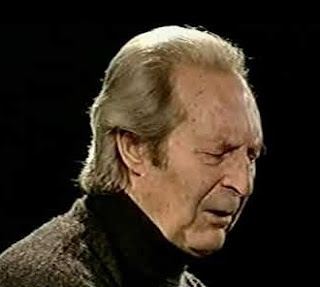The distinguished career of a multi award-winning musician
The internationally acclaimed orchestra conductor Claudio Abbado was born on this day in 1933 in Milan..jpg)
Claudio Abbado had a long and
successful career in music
Abbado was musical director at Teatro alla Scala, the opera house in his native city, from 1972 to 1980 and remained affiliated to the theatre until 1986. He was the principal conductor of the Vienna Philharmonic and the London Symphony Orchestra and was appointed director of the Vienna State Opera and the Berlin Philharmonic.
Born into a musical family, Abbado studied the piano with his father, Michelangelo Abbado from being eight years old. His father was a professional violinist and a professor at the Giuseppe Verdi Conservatory in Milan. His mother, Maria Carmela Savagnone, was a pianist and his brother, Marcello, became a concert pianist, a composer, and a teacher.
The Nazis occupied Milan during his childhood and his mother spent time in prison for harbouring a Jewish child. Abbado grew up to have anti-fascist political beliefs.
Abbado studied piano, composition and conducting at the Milan Conservatory. After deciding to be a conductor, he went to study in Vienna, winning the Koussevitsky prize in 1958 and the Metropolitan Prize in 1963. He made his conducting debut in Trieste in 1958 and his conducting debut at La Scala in 1960.
After being engaged by the New York Philharmonic, he began a successful international career. He was principal guest conductor of the Chicago Symphony Orchestra, founder and director of Lucerne Festival Orchestra, founder and director of Mahler Chamber Orchestra, founding Artistic Director of Orchestra Mozart, and music director of European Youth Orchestra
 |
| Claudio Abbado made his conducting debut in Trieste in 1958 at the age of 25 |
Abbado had a son and daughter from his first marriage, a son from his second marriage, and a son as a result of his four-year relationship with the Russian-born British violinist Viktoria Mullova.
In 2013, Italian President Giorgio Napolitano appointed Abbado to the Italian Senate as a Senator for life.
One of the leading conductors of his generation, Abbado died in Bologna in 2014 at the age of 80. As a tribute to him, La Scala’s orchestra, conducted by Daniel Barenboim, performed the slow movement of Beethoven’s Symphony No 3 to an empty theatre, with the performance relayed to a crowd in the square in front of the opera house and live streamed via La Scala’s website.
Travel tip:.jpg)
The Teatro alla Scala in Milan was originally
built almost 250 years ago
Milan’s Teatro alla Scala, known to Italians simply as La Scala, has become the leading opera house in the world. It opened in 1778 after fire had destroyed the Teatro Regio Ducale, which had previously been the home of opera in Milan. A new theatre for the city was built on the site of the former Church of Santa Maria alla Scala, which is how the theatre got its name. It was designed by neoclassical architect Giuseppe Piermarini. The world’s finest singers have appeared at La Scala during the last 240 years and the theatre has hosted the premieres of operas by Rossini, Donizetti, Verdi, and Puccini. La Scala’s original 18th century structure was renovated in 1907 and, after bomb damage during World War II, it was rebuilt and reopened in 1946.
Travel tip:
The Teatro Massimo in Palermo had been dark
for 23 years when it was reopened in 1997
Palermo’s Teatro Massimo became a symbol of Italy’s fight back against the Mafia when Claudio Abbado conducted the Berlin Philharmonic in a concert there in 1997. The largest opera house in Italy, the Teatro Massimo had been closed for supposedly minor refurbishments in 1974, but with the Mafia controlling local government, no money was made available for the work. However, after the murder of Giovanni Falcone, the city turned against the Mafia and maestro Abbado was invited to conduct there at its grand reopening after the theatre had been dark for 23 years.
Also on this day:
1906: The birth of singer and actor Alberto Rabagliati
1944: British bombers attack San Marino
1968: The birth of footballer Paolo Maldini

